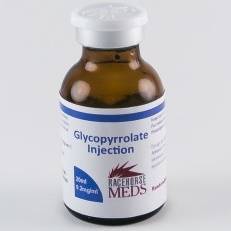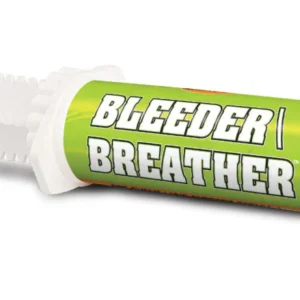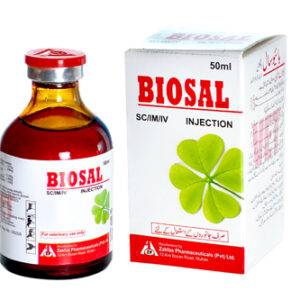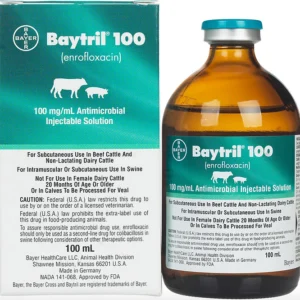Glycopyrrolate Injection
buy glycopyrrolate injection is a synthetic anticholinergic (antimuscarinic) medication widely used in both human and veterinary medicine. It is primarily employed to reduce secretions, prevent bradycardia (slow heart rate), and counteract parasympathetic nervous system stimulation. In veterinary applications, it is commonly used in dogs, cats, horses, and other animals during anesthesia and as a supportive treatment for certain conditions. glycopyrrolate injection price,
Glycopyrrolate works by blocking muscarinic receptors, which inhibits the parasympathetic nervous system (responsible for rest-and-digest functions).
This results in:
Reduced salivary, respiratory, and gastrointestinal secretions.
Increased heart rate (by inhibiting vagal stimulation).
Reduced spasms of the gastrointestinal and urinary tract.
Onset and Duration:
Onset of action: 1–2 minutes after intravenous (IV) administration; 15–30 minutes for intramuscular (IM) administration.
Duration: Typically lasts 2–4 hours, longer than atropine, making it a preferred choice in specific cases.
Uses in Veterinary Medicine
Pre-Anesthetic Agent:
Commonly used as part of pre-anesthetic protocols to:
Reduce salivary and respiratory secretions, which may interfere with intubation. glycopyrrolate injection price
Prevent bradycardia caused by anesthetic drugs (e.g., opioids, alpha-2 agonists).
Treatment of Bradycardia:
Administered during surgery or in emergencies to correct slow heart rates induced by drugs or vagal stimulation.
Antidote for Toxicity:
Used to counteract cholinergic overstimulation caused by organophosphate or carbamate toxicity.
Gastrointestinal Spasm Relief:
Sometimes used to reduce spasms and hypermotility in conditions like colic in horses or diarrhea in small animals. buy glycopyrrolate injection
Control of Hypersecretory States:
Effective in managing excessive salivation (sialorrhea) or other secretory conditions.
Dosage and Administration
Routes of Administration:
Intravenous (IV): For rapid action.
Intramuscular (IM) or subcutaneous (SC): For slower but sustained effects.
Dosage Guidelines:
Dogs and Cats:
Pre-anesthetic: 0.005–0.01 mg/kg IM or IV.
Emergency bradycardia: 0.01 mg/kg IV, repeated as needed.
Horses:
Pre-anesthetic: 0.002–0.005 mg/kg IV or IM.
Other Animals:
Dosing depends on the species, body weight, and specific condition. Always consult a veterinarian.
Frequency:
May be administered once or repeated every 2–4 hours based on clinical response.
Advantages of Glycopyrrolate Over Atropine
Longer Duration:
Glycopyrrolate has a longer effect (2–4 hours) compared to atropine (1–1.5 hours).
Better Secretion Control:
More effective in reducing respiratory and salivary secretions.
Less Likely to Cross the Blood-Brain Barrier:
Glycopyrrolate is less likely to cause central nervous system (CNS) effects, such as sedation or disorientation, compared to atropine. buy glycopyrrolate injection
Predictable Cardiac Effects:
Provides more controlled increases in heart rate without the abrupt spikes seen with atropine. glycopyrrolate injection price
buy glycopyrrolate injection
Side Effects
Common Side Effects:
Dry mouth and reduced salivation.
Tachycardia (increased heart rate).
Constipation due to reduced gastrointestinal motility.
Urine retention in some cases.
Rare Side Effects:
Hypersensitivity reactions (swelling, difficulty breathing).
Mydriasis (pupil dilation), leading to light sensitivity.
Temporary difficulty swallowing.
Overdose Symptoms:
Severe tachycardia.
Difficulty breathing.
Gastrointestinal stasis.
CNS signs like excitement (rare, due to poor CNS penetration). buy glycopyrrolate injection
Precautions and Contraindications buy glycopyrrolate injection
Contraindications:
Animals with glaucoma or increased intraocular pressure.
Animals with intestinal obstruction, ileus, or severe constipation.
Caution in animals with heart disease or tachyarrhythmias.
Drug Interactions:
Avoid concurrent use with other anticholinergic drugs to prevent additive effects.
May interact with drugs that increase vagal tone or slow the heart.
Use in Pregnant Animals:
Use with caution in pregnant animals. Consult a veterinarian for case-specific advice.
Storage
Store at room temperature (15–30°C).
Protect from light and extreme temperatures.
Ensure sterility if using multi-dose vials.
glycopyrrolate injection price
Glycopyrrolate is a safe and effective anticholinergic for pre-anesthesia, bradycardia management, and secretion control.
It has a longer duration of action and more predictable cardiac effects compared to atropine.
Veterinary supervision is essential to ensure appropriate dosing, especially in emergency or surgical contexts.





Reviews
There are no reviews yet.